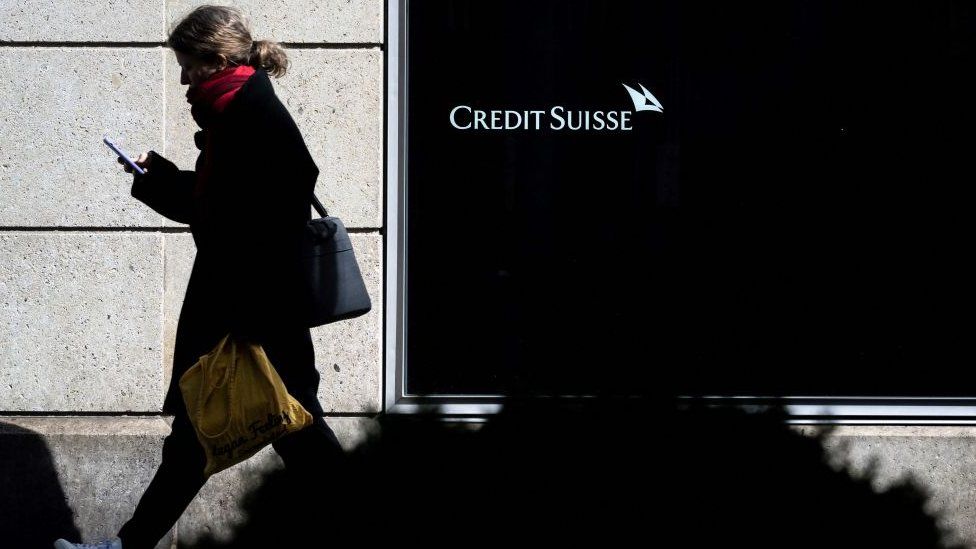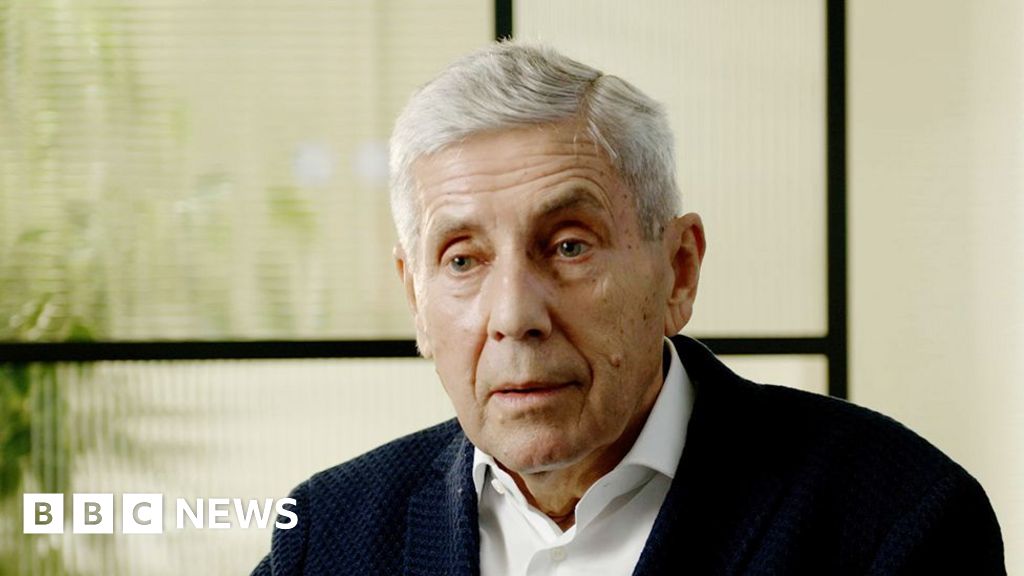ARTICLE AD BOX
 Image source, Getty Images
Image source, Getty Images
By Daniel Thomas & Michael Race
Business reporter, BBC News
Shares in European banks remain volatile after an "emergency rescue" of Swiss giant Credit Suisse failed to quell fears of a wider crisis.
The bank was bought by rival UBS after regulators worked frantically round the clock to secure a deal.
It comes amid fears over the global financial system after two smaller US banks failed in recent weeks.
Despite the panic, experts do not expect a repeat of 2008 when banks stopped lending to each other.
The situation was so dire then it sparked a global recession.
Banking stocks remained under pressure on Monday, dropping sharply before regaining some ground with Deutsche Bank, Barclays and UBS all trading lower.
In the US, meanwhile, shares in another troubled lender - First Republic - fell 16.9% in pre-market trading.
Central banks have been trying to reassure the public, with the Bank of England and saying that the UK's financial system is "safe and sound".
Six central banks, including the US Federal Reserve, also announced they would boost the flow of dollars in the global financial system to make sure banks had easy access to cash.
Banks have been struggling with the recent rise in interest rates which has left some sitting on substantial losses.
It led to the collapse of Silicon Valley Bank and Signature Bank - two medium sized lenders - in the US last week and sparked concerns other banks could get into trouble.
Credit Suisse - which had been loss-making for some time but which was otherwise well capitalised - has been hit by this crisis of confidence.
The 167-year-old institution is one of around 30 banks worldwide deemed too big to fail because they are of such importance to the banking system.
Switzerland's second largest lender, which has struggled with a string of scandals over the last few years, was sold to UBS at just over $3.15bn (£2.6bn), a fraction of its $8bn price tag on Friday.
Mark Yallop, the former UK chief executive of UBS, said the deal "should" do the job of reassuring investors.
"This is a takeover of a challenged institution with particular idiosyncratic problems that relate to it specifically [and are] not reflective of broader issues in the banking markets," he told the BBC's Today programme.
Image source, EPA
Image caption,The chairmen of both banks spoke at a news conference in Bern on Sunday
UBS chairman Colm Kelleher described said it would wind down Credit Suisse's investment banking operations but that it was "too early" to say what would happen about jobs.
Credit Suisse has around 74,000 staff, around 5,000 of them in the UK.
"We need to do this in a rational way thoughtfully, when we've sat down and analysed what we need to do," he said.
Ordinary people have little reason to fear for their funds.
In the highly unlikely scenario that a bank or building society actually collapses, then deposit protection is in place.
In the UK, that means £85,000 per person, per institution is protected (or £170,000 in a joint account). So, if you have £85,000 in one bank, and another £85,000 in a separately licensed bank, then it is all safe if both went bust, under the Financial Services Compensation Scheme. There is also a higher temporary limit of £1m for six months, if you get a sudden influx of funds, such as an inheritance.
Protection is similar in the EU, and the US government has safeguarded deposits of up to $250,000 for a long time.

 1 year ago
140
1 year ago
140








 English (US) ·
English (US) ·